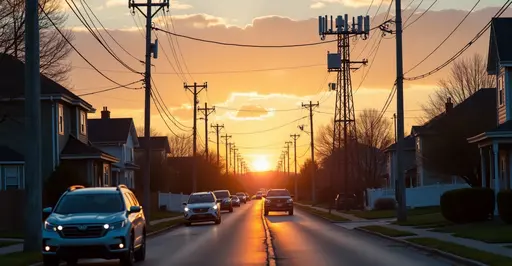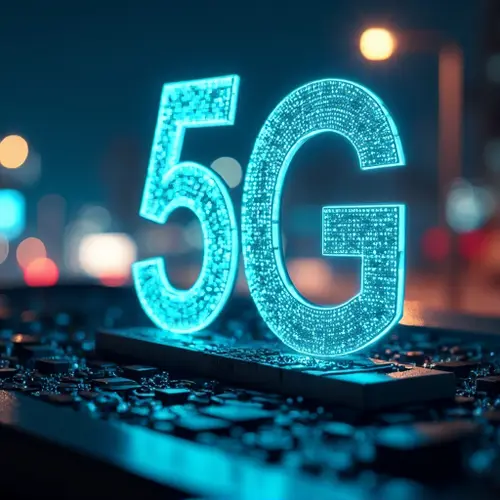The 5G Revolution: Progress Meets Public Resistance
As 5G networks continue their rapid expansion across the United States, communities are grappling with complex questions about health impacts, privacy risks, and the visual transformation of neighborhoods. The fifth generation of cellular technology promises unprecedented speeds and connectivity, but its deployment has ignited debates that pit technological progress against community values.
Infrastructure Expansion and Zoning Battles
The physical rollout of 5G infrastructure has become a flashpoint for local disputes. According to recent data, outdoor small cell deployments reached approximately 197,850 units in 2024, though this falls significantly short of initial industry projections of 800,000 small cells by 2026. 'We're seeing a fundamental shift from small cells to colocations on existing towers,' explains telecommunications analyst Sarah Chen. 'Operators are realizing that filling coverage gaps with midband spectrum requires different strategies than the initial urban-focused approach.'
This strategic pivot comes as communities increasingly resist new installations. A 2024 Pew Research survey revealed that only 22% of Americans support 5G small cells in residential neighborhoods, while 61% don't trust cities to properly notify them about new tower installations. More than 250 municipalities have passed resolutions urging caution, and over 25 lawsuits have been filed nationwide to stop or delay tower construction.
Health Concerns Drive Community Opposition
Health fears remain a primary driver of community resistance. The systematic review published in PMC analyzed competing narratives around 5G health effects, finding that industry-affiliated studies consistently reported no health risks while activist-linked publications consistently identified potential harms. 'The scientific debate has become polarized along funding lines,' notes Dr. Michael Reynolds, a public health researcher. 'Independent studies show mixed results, which creates confusion for communities trying to make informed decisions.'
Property value concerns also factor heavily into opposition. Studies indicate homes within 500 feet of 5G poles sell for 2-7% less and remain on the market 13% longer. Cities like Mill Valley, California have maintained emergency bans on 5G in residential zones since 2018, while others have established setback requirements and moratoriums to address community concerns.
Privacy and Data Collection Challenges
Beyond physical infrastructure, 5G raises significant privacy questions. Research from MDPI highlights how 5G networks extensively utilize subscriber identifiers throughout the protocol stack, potentially enabling detailed tracking of location and behavior. While 5G offers improved user identity protections compared to previous generations, concerns remain about the exchange of subscriber metadata and the collection capabilities of the massive IoT ecosystem.
'5G creates unprecedented data collection opportunities,' warns privacy advocate Lisa Rodriguez. 'The combination of high-speed connectivity, low latency, and massive device networks means our movements, habits, and interactions can be monitored with granular detail we've never seen before.'
Regulatory Framework and Community Engagement
The 2018 FCC Small Cell Order, which requires permits to be approved within 60 days, has often bypassed community input processes. According to a 2023 OpenSignal report, 74% of small cells in California and Florida were installed without public notice. This regulatory framework has created tensions between federal mandates and local control.
Effective strategies for addressing community pushback include early engagement, transparency about health studies, alternative siting options, and stealth tower designs. 'The key is bringing communities into the conversation early,' says urban planner David Thompson. 'When residents understand both the benefits and the mitigation measures, we see much more productive outcomes.'
As 5G deployment continues through 2025, the balance between technological advancement and community interests remains delicate. The evolution from small cells to colocations represents an industry response to public concerns, but fundamental questions about health, privacy, and local control continue to shape the rollout of this transformative technology.

 Nederlands
Nederlands
 English
English
 Deutsch
Deutsch
 Français
Français
 Español
Español
 Português
Português










